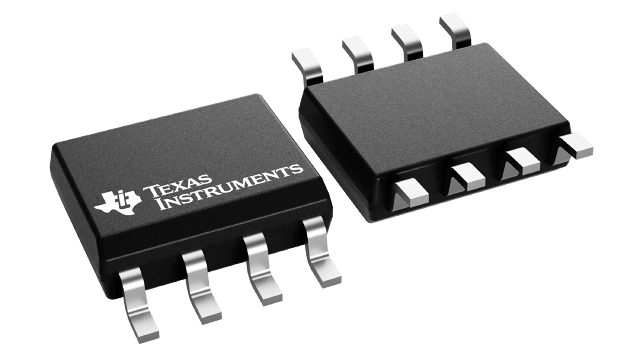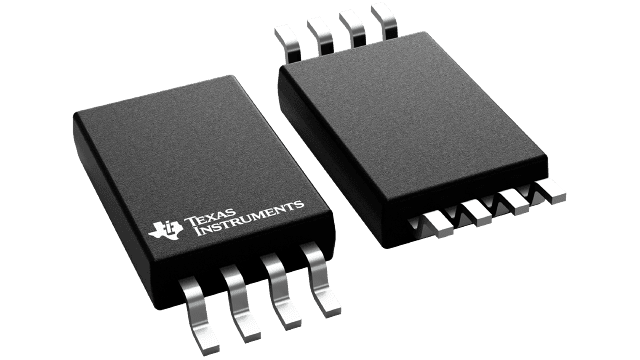| Function | Memory interface |
| Additive RMS jitter (Typ) (fs) | 70 |
| Output frequency (Max) (MHz) | 200 |
| Number of outputs | 4 |
| Output supply voltage (V) | 3.3 |
| Core supply voltage (V) | 3.3 |
| Output skew (ps) | 150 |
| Features | SDR |
| Operating temperature range (C) | -40 to 85 |
| Rating | Catalog |
| Output type | LVCMOS |
| Input type | LVCMOS |
- Phase-Lock Loop Clock Driver for Synchronous DRAM and General-Purpose Applications
- Spread Spectrum Clock Compatible
- Operating Frequency: 24 MHz to 200 MHz
- Low Jitter (Cycle-to-Cycle): < |150 ps| (Over 66 MHz to 200 MHz Range)
- Distributes One Clock Input to One Bank of Five Outputs (CLKOUT Used to Tune the Input-Output Delay)
- Three-States Outputs When There Is No Input Clock
- Operates From Single 3.3-V Supply
- Available in 8-Pin TSSOP and 8-Pin SOIC Packages
- Consumes Less Than 100 mA (Typical) in Power-Down Mode
- Internal Feedback Loop Is Used to Synchronize the Outputs to the Input Clock
- 25-Ω On-Chip Series Damping Resistors
- Integrated RC PLL Loop Filter Eliminates the Need for External Components
The CDCVF2505 is a high-performance, low-skew, low-jitter, phase-lock loop (PLL) clock driver. This device uses a PLL to precisely align the output clocks (1Y[0-3] and CLKOUT) to the input clock signal (CLKIN) in both frequency and phase. The CDCVF2505 operates at 3.3 V and also provides integrated series-damping resistors that make it ideal for driving point-to-point loads.
One bank of five outputs provides low-skew, low-jitter copies of CLKIN. Output duty cycles are adjusted to 50 percent, independent of duty cycle at CLKIN. The device automatically goes into power-down mode when no input signal is applied to CLKIN.
The loop filter for the PLLs is included on-chip. This minimizes the component count, space, and cost.
The CDCVF2505 is characterized for operation from –40°C to 85°C.
Because it is based on the PLL circuitry, the CDCVF2505 requires a stabilization time to achieve phase lock of the feedback signal to the reference signal. This stabilization is required following power up and application of a fixed-frequency, fixed-phase signal at CLKIN, and following any changes to the PLL reference.



